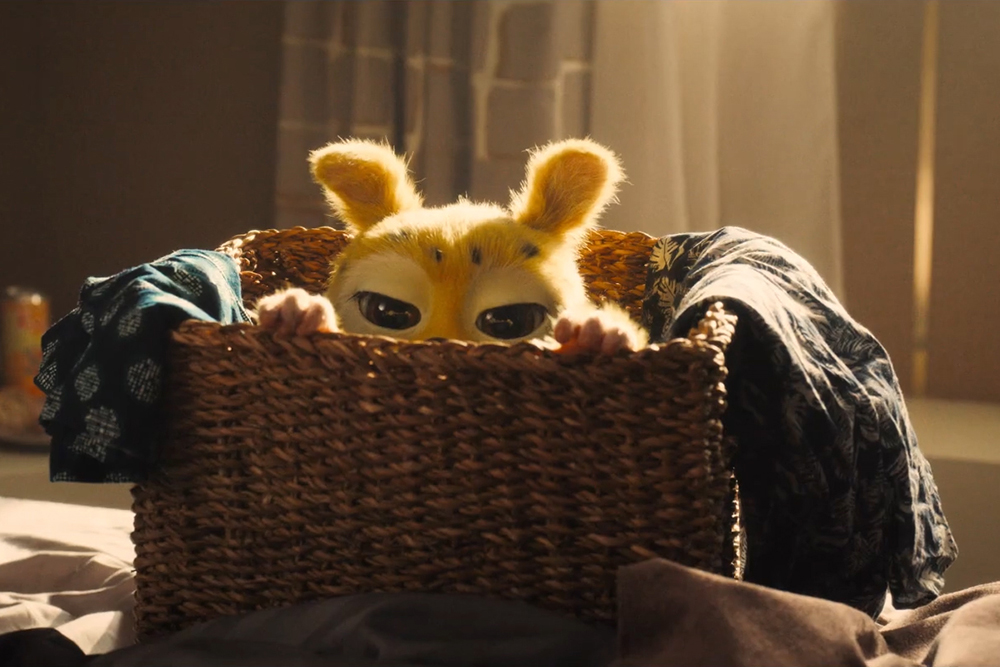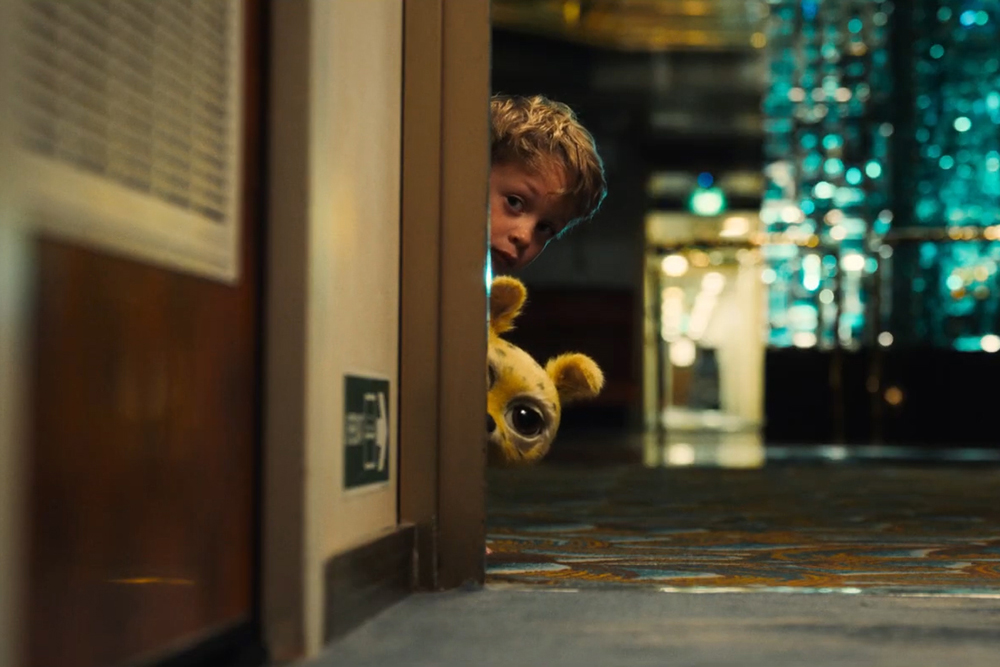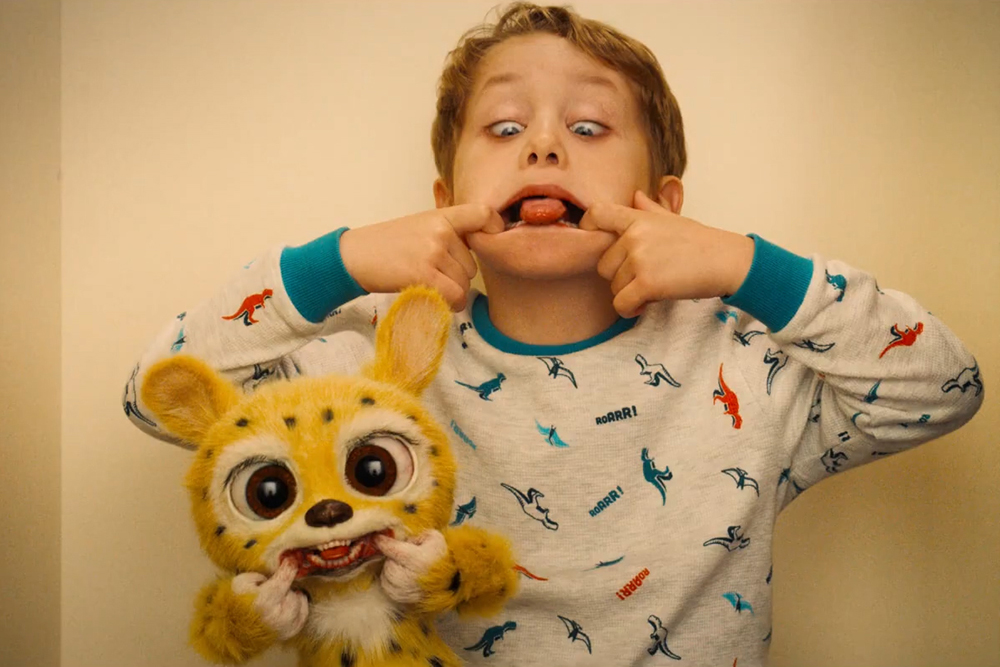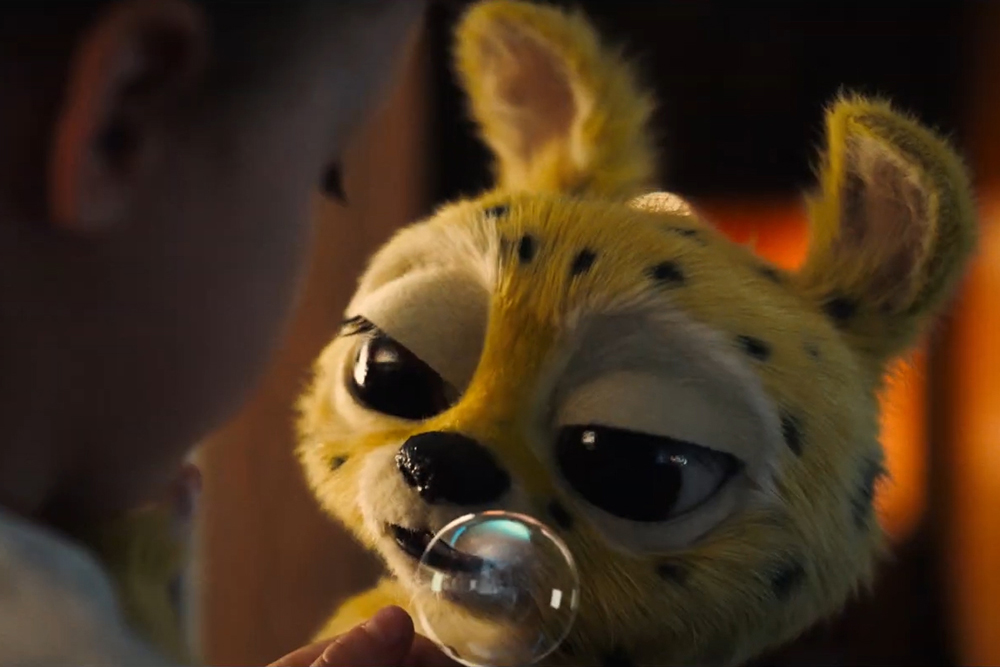Movies - Marsupilami: a blockbuster film combining Franquin's legacy with mainstream comedy
By Mulder, 24 november 2025

Long anticipated, often fantasized about, and now made official with a first trailer released on November 24, 2025, Marsupilami marks the unexpected—and frankly exciting—return of a universe to which the French public remains viscerally attached. Directed by Philippe Lacheau, this new film is not only a modern adaptation of the character created in 1952 by André Franquin, but also a direct sequel to Alain Chabat's 2012 film Sur la piste du Marsupilami. And the trailer, unveiled as a minor digital event, plays perfectly on this connection by confirming what many had hoped for: the return of Jamel Debbouze in the role of Pablito Camaron, a clear nod to the first film adaptation. The film, constructed as a generous family adventure comedy, is in line with the tradition of the “Fifi gang” projects, whose comic timing, burlesque energy, and overall cohesion have shaped one of the most solid popular phenomena in recent French cinema.
Behind the deliberately crazy pitch—a father on the verge of professional collapse, David, unwittingly caught up in a botched plan to bring a mysterious package back from South America—the film immediately plays on a mixture of action, comedy, and the unexpected. The character's forced journey, accompanied by his ex-girlfriend Tess, his son Léo, and his disaster-prone colleague Stéphane, descends into total chaos when Stéphane accidentally opens the famous package: an adorable baby marsupilami emerges, triggering a series of zany events that transform their cruise into a tropical odyssey. It is this way of plunging ordinary characters into an extraordinarily uncontrollable situation that is the trademark of Philippe Lacheau, whose writing (here co-authored with Pierre Dudan, Julien Arruti, and Pierre Lacheau) is based on a group dynamic that is constantly under tension. And through this baby Marsupilami, we can already glimpse the possibility of reconnecting with Franquin's original magic: a mythical, unpredictable, tender, and sometimes explosive animal, whose mere presence is enough to transform reality into a playground.

Filming began on July 23, 2024, in Thailand and lasted 62 days, taking place in an atmosphere of creative effervescence and technical ambition rarely seen in French comedies. The production—led by Pathé Films Production, BAF Prod, TF1 Films, Artémis Productions, and Logical Content Ventures—focused in particular on recreating the Palombian jungle imagined by André Franquin, that half-realistic, half-fantasy space where the Marsupilami evolves with its oversized tail, its sometimes absurd logic, and its instinctive tenderness. According to several members of the crew on set, the Thai teams quickly grew fond of the digital creature in development, even affectionately nicknaming the set mascot “Houba Jr.” Even if this anecdote is just part of the folklore of filmmaking, it says a lot about the cultural impact of the Marsupilami, a fictional animal with such a strong personality that it has influenced generations of readers, animators, and artists, far beyond the French-speaking world.
This new adaptation fully embraces the colossal legacy of the character imagined by André Franquin in 1952 in Spirou and Fantasio. To understand the importance of the Marsupilami's return to the cinema, it is necessary to remember how unique a place this creature occupies in the world of comics. Endowed with Herculean strength, capable of prodigious feats of agility thanks to a tail that can reach eight meters in length, gifted with a keen sense of family and an onomatopoeic language that is as endearing as it is expressive, the Marsupilami is a distillation of graphic and narrative inventiveness. The work of zoologists such as Alain Quintart and the studies of Pascal Tassy, who have humorously attempted to scientifically validate the species “Marsupilami franquini,” show how much the animal has crossed the boundary between fiction and pseudo-reality. This ability to inspire fake scientific articles, animated series, spin-off albums, graphic tributes, and even contemporary social commentary, as in the series La Bête by Zidrou and Frank Pé, is testament to its exceptional cultural longevity.

The film also nods to the diversity of representations of the Marsupilami over the decades: from Franquin's original arboreal model to its aquatic, African, or darker variants in modern reinterpretations, the creature has often been a mirror of its times. By bringing a baby Marsupilami back to the heart of the plot, Philippe Lacheau seems to want to reconnect with the innocence and humor that made the character a popular myth. And the idea of pitting contemporary antiheroes—the overwhelmed father, the ex who no longer believes in miracles, the adventure-hungry child, the disastrous colleague—against an animal as legendary as it is unpredictable creates a strong emotional dynamic. In discussions with the artistic team, several comments suggest that the directors sought to move away from a simple gag film to reconnect with a family-oriented, almost initiatory dimension, reminding us that the Marsupilami is not just a comic device, but a symbol of simple and universal emotions.
Beyond the writing, the casting appears to be a real tour de force, bringing together the pillars of the "Fifi gang — Philippe Lacheau, Tarek Boudali, Élodie Fontan, Julien Arruti, Alban Ivanov, Reem Kherici — joined by iconic figures of French cinema such as Jean Reno, Gérard Jugnot, Didier Bourdon, Vincent Desagnat, and Booder. The return of Jamel Debbouze, already a cult figure in the role of Pablito Camaron, is obviously a huge highlight, but the appearance of talents such as Youssef Sahraoui and Romain Lancry also promises unexpected comic counterpoints. The intention seems clear: to create a unifying, intergenerational film that will appeal to both viewers who loved the 2012 adaptation and long-time fans of the comic book.

Technically, the team led by director of photography Pierric Gantelmi d'Ille and editor Antoine Vareille gives the project a visual scope that surpasses the group's traditional comedies. The sound design, entrusted to Maxime Desprez and Michaël Tordjman, also aims to reinvent the musical identity of Marsupilami, somewhere between adventure and fantasy. Several sources indicate that the music will incorporate rhythmic motifs reminiscent of the animal's legendary speed, and that certain exotic instruments will be used to evoke the Palombian jungle, a true secondary character in the film.
By consolidating its comic DNA while opening up to the mythological dimension of a comic book icon, Marsupilami promises to be a hybrid project, halfway between a family adventure film, an explosive comedy, and a respectful tribute to one of the most emblematic characters of the 9th art. The fact that the French release date has been set for February 4, 2026 shows that Pathé intends to position the film as a major event at the beginning of the year, a unifying moment in theaters where humor, spectacle, and nostalgia can coexist. And if the trailer is any indication—fast-paced, generous, colorful, full of effects and energy—it's a safe bet that audiences will be delighted to rediscover the “houba houba hop” spirit that has rocked several generations.

In revisiting a character so steeped in history and emotion, Philippe Lacheau and his team seem to have understood that it's not enough to modernize a myth to bring it back to life: above all, you have to recapture the primitive emotion, the spontaneous smile, and the lighthearted poetry that belong only to the Marsupilami. And this new adventure, which brings together both the memory of André Franquin and the legacy of Alain Chabat, could well mark the triumphant return of the most famous yellow animal with black spots to the big screen, ready to conquer a new generation. Houba. Hop. Roll on 2026.
Synopsis:
To save his job, David agrees to a risky plan: to bring back a mysterious package from South America. He finds himself on a cruise ship with his ex Tess, his son Léo, and his colleague Stéphane, who is as stupid as he is clumsy, and whom he uses to transport the package for him. Everything goes wrong when Stéphane accidentally opens it: an adorable baby Marsupilami appears and the trip descends into chaos. Fifi's gang is back, and they've made a new friend...
Marsupilami
Directed by Philippe Lacheau
Written by Philippe Lacheau, Pierre Dudan, Julien Arruti, Pierre Lacheau
Produced by Patrice Ledoux
Starring Philippe Lacheau, Jamel Debbouze, Tarek Boudali, Élodie Fontan, Julien Arruti, Alban Ivanov, Reem Kherici, Jean Reno, Youssef Sahraoui, Gérard Jugnot, Didier Bourdon, Vincent Desagnat, Booder, Romain Lancry
Director of photography: Pierric Gantelmi d'Ille
Editing: Antoine Vareille
Music: Maxime Desprez, Michaël Tordjman
Production companies: Pathé Films Production, BAF Prod, TF1 Films, Artémis Productions, Logical Content Ventures
Distribution: Pathé Films (France)
Release date: February 4, 2026 (France)
Running time: TBD
Our media has always been there to support the films of Philippe Lacheau and his crew. It will be no different for this film, which we are eagerly awaiting.

